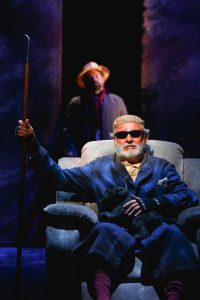reviewed by Neville Cohn
In its original and accurate sense, chamber music, by definition, is intended for performance in a small space – perhaps, say, in the lounge room of a suburban home or the entrance hall of a mansion or, at most, in a small commercial space. Intimacy is its crucial requirement. As a critic who has long since lost count of performances devoted to such music, I can say that during those many years, the number of times I’ve listened to high-end chamber music in the sort of space which the composers might have had in mind for this or that work, is very, very low indeed. Commercial considerations demand continuation of the status quo. It’s virtually non-negotiable.
I dare say that box office takings at concerts featuring musicians who are paid very high fees are a necessary requirement.
But there was a delightful departure from this state of affairs at a concert given in a suburban Perth residence in a conventionally-sized room. The Pacifica Quartet, US-based, was to give a performance at the Concert Hall on the night following. But to raise funds for bringing music and musical instruments to young people living miles from cities and so far away in some cases that even radio reception is uneven or non-existent, the Pacifica ensemble agreed to participate in a re-creation of an old-style chamber music environment..
Bringing the musical action so close to the listener can be an extraordinary experience, not the least of it being the strikingly different sound that reaches the ear, for instance, the unmistakable but only-very-rarely encountered grainy quality as bows bite strings. A first encounter can – and often is – a startling and even off-putting experience. I have known some listeners who find the experience so grating and unpleasant that they find it necessary to leave the room. In larger performing spaces such as purpose-built auditoriums, this is a non-issue.
Some liken close listening to bow on string to the sound of a finger nail scraping down a blackboard. Its metallic, ratcheting sound can be offputting.
So it was a fascinating experience to listen to Beethoven’s late quartet – opus 135 – under these conditions. Of all Beethoven’s chamber music produced in the twilight of his life, opus 135 would be one of the most accessible. To be frank, I’d have preferred to listen to it in a larger space. Although this was a rare opportunity to listen to a music masterpiece under conditions similar to those in Beethoven’s time, I found the nearness of the instruments eventually oppressive. But it was a rare experience and I’m so glad I had that opportunity to experience chamber music as it might have sounded in the composer’s day. I think every enthusiastic chamber music follower might benefit from an insight of this sort if only on a one-off basis.
There was more than Beethoven on offer. We listened, too, to utterly different music in the form of Astor Piazzolla’s Four for Tango. This, too, came across as a sonic gem to cherish.
My there be more of these events, fascinating in their own right – and beneficial in a very real and important way for young musicians in remote places. Bravissimo!




